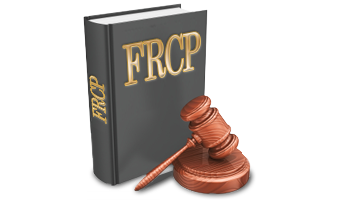
Electronic Discovery Under the Federal Rules of Civil Procedure
One of the stages of civil litigation in the United States is discovery, which is the pre-trial exchange of information and evidence among the litigating parties. This requires the exchange of all discoverable information, whether in tangible or electronic form. Rules of civil procedure control how this information can be requested and produced. When litigating a civil case in US Federal Courts, the discovery process is governed by the Federal Rules of Civil Procedure (FRCP). This article provides a very brief outline of some of the relevant discovery rules under the FRCP that concern electronic discovery (sometimes referred to as electronically stored information, or ESI).
FRCP 16(b) – The court will issue a scheduling order which will outline the production of ESI.
FRCP 26(a) – The parties must provide an “initial disclosure” of information, including ESI.
FRCP 26(b) – A party need not produce ESI if it is not reasonably accessible, subject to certain requirements and exceptions.
FRCP 26(f) – The parties must confer and discuss any potential issues concerning the discovery of ESI.
FRCP 33(d) – A party may respond to interrogatories by producing business records, including ESI.
FRCP 34 – Establishes the process for requesting documents (including ESI) and the procedures when producing the documents.
FRCP 37(e) – The Court may not impose discovery sanctions for the failure to produce ESI if the ESI was lost due to the good faith and routine operation of computer systems.
FRCP 45 – A subpoena can request ESI, but the third party may object to the production of ESI if it is not reasonably accessible, subject to certain requirements and exceptions.
For additional information about civil litigation in Michigan or North Carolina, please contact us.




